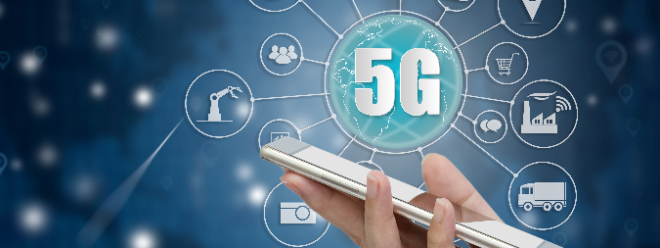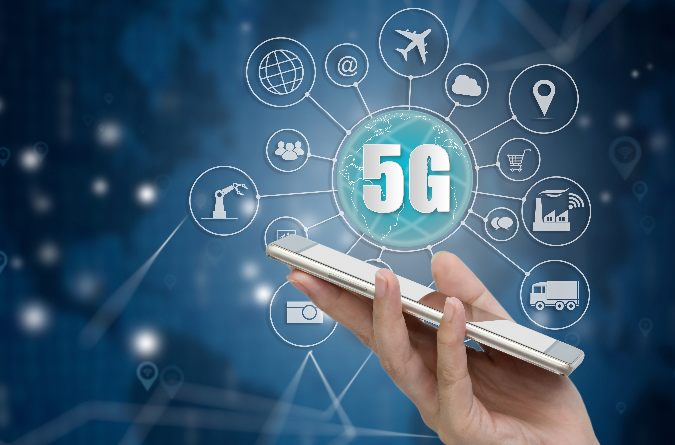What does 5G mean for enterprise business?

What does 5G mean for enterprise business?

Mobile 5G networks are expected to be a bridge to Industry 4.0. But the reality is that coverage is spotty and entry costs are high. What should an enterprise business chief technology officer (CTO) be thinking about when enabling 5G?
With so much hype for so long, 5G has become one of the most anticipated technological leaps in the enterprise space. Does it live up to expectations? What does it mean for large, complex data applications?
5G factor
In short, 5G offers businesses significant data performance improvements over previous iterations of cellular technology. It is faster, with less latency in data transfer and greater throughput.
"The key is for the CTO to understand why they are upgrading"
This means two things: an instant online experience for mobile consumers and, more profoundly, the opening of the digital economy to cutting-edge enterprise-grade technology. 5G will upgrade access for gamers and home workers, who will experience speeds comparable to wired connections, but large and complex data applications are most likely to have an impact.
“The performance characteristics of 5G connectivity enable emerging technologies: edge computing, artificial intelligence, data analytics, and more,” said Richard Webb, director of network infrastructure at CCS Insight.
“In terms of opportunity, it depends on where the business is in its digital transformation, but as businesses become more data-centric in their operations, 5G opens up new options for where operational data and processes reside. This It may create a path to operational efficiencies, cost savings, improved customer experience or the generation of new revenue streams."
a great leap
5G could deliver data speeds 10 to 20 times faster than its predecessor, 4G, especially in urban and urban environments where it works best. With speed comes capacity -- more information is transmitted over the same bandwidth -- and that's where the real potential lies.
5G enables businesses to deploy more devices and sensors in more places without investing in the kind of fixed-line connectivity required for high data consumption and always-on connectivity use cases that will power future smart cities, utilities, transportation, Hospitals and smart factories provide support.
Jaco Vermeulen, chief technology officer at BML Digital, said that until now, remote connections meant smaller data volumes and limited scheduled feeds, but 5G raises the bar for capacity and continuous upstream and downstream data feeds.
He added: "This enables IoT projects to explore a wider range of capabilities and use cases, and provides a richer input for big data collection. It opens up artificial intelligence and machine learning to process with denser data points, thereby produce more accurate output."
New, more powerful cellular technologies bring greater automation capabilities, lower costs, greater support for numerous devices with lower power consumption and longer battery life, and improved security.
At the enterprise level, it will facilitate emerging technologies such as robotic process automation, predictive analytics and flexible remote working models for employees on site and at home.
Doug Castor, senior director of 6G projects at Philadelphia-based InterDigital, said more people working outside centralized centers means more advanced enterprise applications being accessed through consumer-grade handsets, so improved connectivity is a must.
“These advances are pushing 4G connectivity to its limits and driving data consumption to extremes, as more complex applications now serve a host of new use cases. As a result, 4G will have to pass the baton to 5G as such quality-of-service requirements Beyond the limits of what it can offer."
This opportunity is not just a general acceleration, but a gateway to entirely new advancements in areas such as health, manufacturing, travel and retail, just a few of the economies ripe for modernization.
"With the continued adoption of the bandwidth provided by 5G, urban IoT, hospitals, real estate, transportation and municipalities will leverage smart technologies designed to improve quality of life, community engagement and public safety," said Laura Roman, Chief Marketing Officer, EDJX USA.
road to adoption
5G will facilitate granular, real-time data collection in the factories of the future. It will help doctors triage patients before they reach the hospital. Shoppers have seamless access to virtual changing rooms. The possibilities are wide-ranging and buyers can easily get ahead of themselves, but in CCS Insight's Richard Webb's view, organizations that define a clear business case before adopting 5G technology will see the best results .
"Overall, I wouldn't recommend anyone 'rush' to upgrade, but I do think 5G is worth considering for enterprise CIOs, CTOs and network executives. It can be a powerful tool to support digital transformation and enable more flexible data and cloud or edge operations. options.
"This will most benefit enterprises that have identified use cases that are constrained by existing network infrastructure. It could deploy a 5G private mobile network within the corporate campus to support localized applications and enable new use cases, improve data security, and Create a more unified technology platform across the enterprise."
He gave the example of a business wanting to upgrade its CCTV network. Its Wi-Fi network might handle feeds from 25 cameras on campus, but a 5G private network could double that number. Other use cases include adding new operations, data capture for analytics, inventory sensors, and more. The key is for the CTO to understand why they are upgrading.
5G for enterprise business
Another consideration affecting making the switch is the existing ecosystem of 5G devices, with applications other than smartphones catching up, in part due to the impact of the Covid-19 pandemic and global semiconductor shortages.
Companies should also consider whether all aggregators, storage, processing power and automation systems are capable of handling the enhanced data exchange, says BML Digital's Jaco Vermeulen.
Asaf Gigi, floLIVE's vice president of marketing, pointed to the potentially high cost of entry and patchy coverage, at least early on, though both factors will fade over time.
In a sense, 5G promises to fill the missing link in the digital transformation of enterprises, without which many prospects for the future will be eclipsed. If the experts get it right, new cellular technologies will realize business expectations at the enterprise level, but it won't happen overnight.